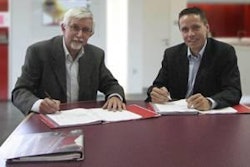2011 could be a more positive year for the poultry industry, but producers will need to be on their guard if they are not to miss out on any upturn in the global economy. While the economic recovery is likely to continue at two speeds, with developed economies recording low levels of growth and developing economies performing more strongly, the outlook is at least positive.
Yet this does not mean that the year will be problem free. Rising unemployment in some areas, higher input costs, and trade disputes can all affect consumption of consumers’ meat of choice.
In this context it is essential that the poultry industry constantly puts its best face forward. Late December and early January saw at least two stories carried by the international press with potentially damaging consequences for national industries.
Tough start
In Germany, there were reports that some 4,700 poultry, pig and turkey farms were quarantined and 8,000 layers destroyed due to fears over dioxin-contaminated feed.
In South Africa, negative publicity arose around the claimed illegal “reworking” of chicken by Country Bird Holdings, and accusations that the company’s behaviour was racist. For its part, Country Birds insisted that it had been reworking entirely within the law, and an industry spokesperson denied all accusations of racism. Country Bird put the original accusations down to a disgruntled former employee whose services had been terminated.
In today’s world, it couldn’t be easier to communicate, what the industry must do is ensure that its communication is effective, honest and as quick as that of its accusers.
Restoring reputations
In writing this piece I came across an independent report into animal welfare practices following accusations by an animal welfare group. The report found that some of the accusations were, indeed, true, and the producer placed these findings in the public domain along with details of the measures that were to be implemented to right the wrongs.
Nobody likes a company that behaves badly, or is accused of behaving badly, however, admitting to, and correcting mistakes can result in forgiveness. If no mistake has been made, that needs to be communicated too.
A good reputation can take a long to acquire, but can be quickly lost, and the costs associated with this loss can be high. When things go wrong, they must be put right, and where the industry is succeeding this must be communicated. Given that markets will remain less than optimal for some time to come, producers need to make the most of whatever they have. No advantage should be lost, whether it be the reputation of an individual producer or of the industry as a whole.


















